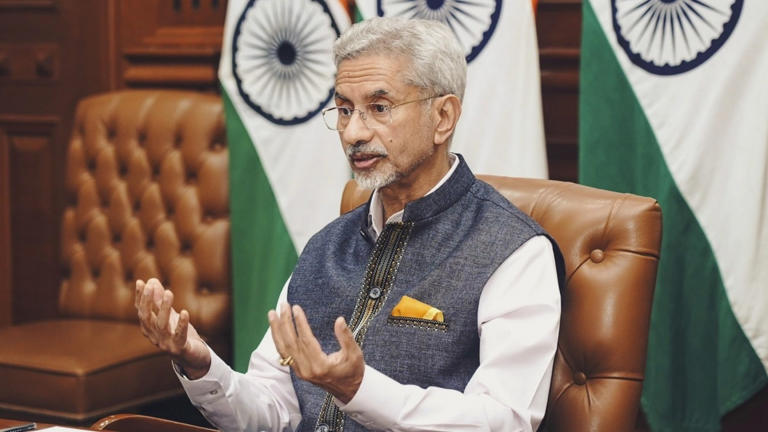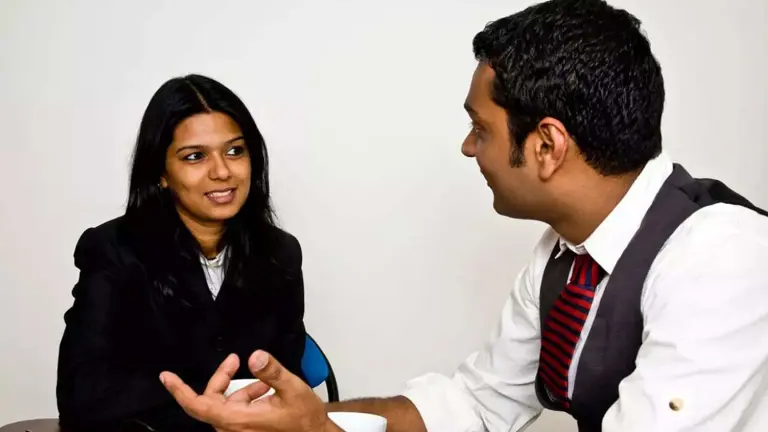Kashmir Issue Will Be Solved Once Stolen Land Is Returned”: S Jaishankar
External Affairs Minister Defends India’s Stand, Rejects Third-Party Intervention
External Affairs Minister S. Jaishankar has once again made it crystal clear—India does not need outside mediation on the Kashmir Issue Resolution. Speaking at the Chatham House think tank in London, Jaishankar stated that India has already taken decisive steps to resolve most of the issue. However, he emphasized that the final solution would only come when the “stolen part of Kashmir” under Pakistani occupation is returned.
“In Kashmir, we have done a good job solving most of it. I think removing Article 370 was one step. Then, restoring growth, economic activity, and social justice in Kashmir was step number two. Holding elections, which were done with a very high turnout, was step number three,” Jaishankar said.
However, he stressed that the only part left to be resolved was Pakistan’s illegal occupation of Kashmir.
“The part we are waiting for is the return of the stolen part of Kashmir, which is under illegal Pakistani occupation. When that’s done, I assure you, Kashmir Issue Resolution will be complete,” he asserted.
With these strong words, Jaishankar reaffirmed India’s stand—there will be no compromise on territorial integrity, and India does not require third-party involvement to settle the issue.
Jaishankar Rejects Third-Party Mediation, Dismisses US Role in Kashmir Issue Resolution
During the discussion, Jaishankar was asked whether Prime Minister Narendra Modi could utilize former US President Donald Trump’s diplomatic efforts to strike a peace deal on Kashmir with Pakistan. His response was clear and firm—India does not need third-party intervention.
📌 Key Takeaways from Jaishankar’s Response on Kashmir Issue Resolution:
✔ Article 370 removal was a critical step in integrating Kashmir fully with India.
✔ Restoring economic growth and holding successful elections have strengthened governance in the region.
✔ Pakistan-occupied Kashmir (PoK) remains the only unresolved aspect of the issue.
✔ India does not believe in external mediation and will resolve Kashmir on its own terms.
His statement echoes India’s long-standing position that the Kashmir Issue Resolution is strictly bilateral and that Pakistan must return illegally occupied land for a complete solution.
India-US Relations: A Shift Towards a Multipolar World
The discussion then turned to India’s evolving relationship with the US, particularly under Donald Trump’s administration. Jaishankar pointed out that the US shift towards a multipolar world aligns well with India’s foreign policy interests.
“We see a president and an administration which, in our parlance, is moving towards multipolarity, and that is something that suits India,” he said.
The Role of the Quad Alliance in Kashmir Issue Resolution
Jaishankar highlighted the Quad alliance—comprising India, the US, Australia, and Japan—as a successful model of cooperation.
📌 Why the Quad Matters?
✔ It ensures fair contributions from all members, preventing “free riders.”
✔ It strengthens regional security and economic ties.
✔ It aligns with India’s vision of multipolarity, where power is distributed rather than concentrated.
“From President Trump’s perspective, the one big shared enterprise that we have is the Quad, which is an understanding where everybody pays their fair share. There are no free riders involved. So that’s a good model which works,” Jaishankar explained.
While the Quad is not directly involved in the Kashmir Issue Resolution, India’s strengthening geopolitical alliances reinforce its position on Kashmir.
India-US Trade Talks: Towards a Bilateral Agreement
Jaishankar also provided an update on India-US trade relations, confirming that both countries have agreed on the need for a bilateral trade pact.
📌 Key Developments in India-US Trade Talks:
✔ PM Modi and Trump had discussions at the White House to address trade barriers.
✔ Commerce and Industry Minister Piyush Goyal is currently in Washington to advance negotiations.
✔ The focus is on tariffs, fair trade policies, and reducing trade imbalances.
“We had a very open conversation about it (tariffs), and the result of that conversation was that we agreed on the need for a bilateral trade agreement,” Jaishankar stated.
Strong trade relations also bolster India’s strategic position on Kashmir Issue Resolution, ensuring global support for its policies.
India’s Stance on the Dollar’s Dominance and BRICS Position
Another critical topic Jaishankar addressed was the role of the US dollar in global trade and whether India supports the idea of moving away from dollar dominance.
📌 Jaishankar’s Key Points on the US Dollar and Kashmir Issue Resolution:
✔ India does not have any policy to replace the dollar as the world’s reserve currency.
✔ The dollar contributes to international economic stability, which is essential for global markets.
✔ BRICS (Brazil, Russia, India, China, and South Africa) does not have a unified stance against the dollar.
“I don’t believe there is any policy on our part to replace the dollar. At the end of the day, the dollar as a reserve currency contributes to international economic stability, and what the world needs right now is more stability, not less,” he clarified.
India’s stable economic policies further strengthen its credibility on global platforms when addressing the Kashmir Issue Resolution.
India’s Firm and Independent Approach to Kashmir Issue Resolution
Jaishankar’s remarks at Chatham House highlighted India’s strong, independent foreign policy and its commitment to resolving its own issues without external intervention.
Key Takeaways:
✔ On Kashmir Issue Resolution: India has already resolved most of the issue, and the only remaining step is the return of Pakistan-occupied land.
✔ On US Relations: India supports a multipolar world, where power is shared rather than centralized.
✔ On Trade: India and the US are moving towards a bilateral trade agreement.
✔ On the Dollar’s Dominance: India believes in stability over radical economic shifts and does not support an anti-dollar stance within BRICS.
With India growing as a global power, Jaishankar’s words reflect a confident and self-reliant nation that engages with global players on its own terms, including in Kashmir Issue Resolution.
🚨 What are your thoughts on Jaishankar’s statements? Should Pakistan return illegally occupied Kashmir? Drop your comments below! 🚨




